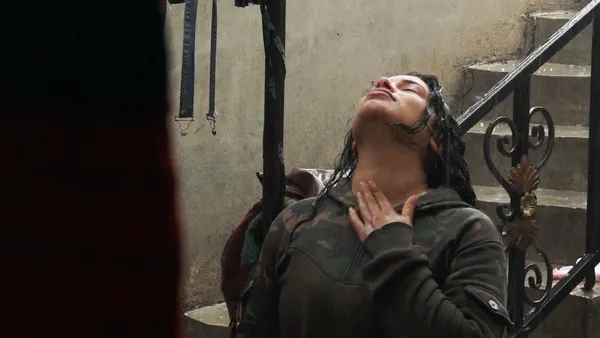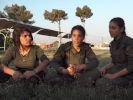Eye For Film >> Movies >> The Other Side Of The River (None) Film Review
The Other Side Of The River
Reviewed by: Matthew Anderson

“Everything we’ve suffered has been because of men,” says 20-year-old Hala, the fearless spearhead and focus of German filmmaker Antonia Kilian’s debut feature documentary The Other Side of the River. After escaping an arranged marriage in Manbij, northern Syria, by fleeing across the Euphrates River, Hala joins and soon comes to be a leader in the Kurdish Women’s Protection Unit.
Followed through each step of their training, downtime and operations by Kilian, who spent more than a year shooting the film, the fighting undertaken by Hala and her comrades occurs on two fronts. Having rid her Kurdish homelands from the tyranny of ISIS, the long-term goal is to overturn the oppression of a domineering patriarchy; to liberate, educate and empower women across the region, to free them from the chains of abuse, marriage and child-bearing. We spend much of the film with Hala and her younger sister, Sosan.

Just two of 12 siblings, Hala vows to return to her family home and free her remaining sisters from a fate that she is certainly willing to die for. There are distant echoes of Deniz Gamze Ergüven’s 2015 narrative feature, Mustang, here, but in its details of the brutal treatment women continue to suffer at the hands of men, one of which is a harrowing recollection of a stoning, The Other Side Of The River stands as a galling reminder of just how much progress remains to be made. Though given intimate access and in developing a closeness to her subject over time, Kilian, responsible for the film’s strong cinematography as well as its direction, maintains, as much as possible, a reportage-style distance for the film’s first act.
Alluding to Atargatis, who in antiquity presided over this region and was, according to opening intertitles, ‘the goddess of the moon, the water and feminine powers,’ Kilian’s debut may not thereafter reach such mythical heights, but her intentional alignment of a Classical figure with her modern-day embodiment does show that this issue is both timeless and universal. In an early interview, where Kilian questions the young women about their reasons for joining the KWPU, translations occur from Kurdish to Arabic to German and then into English subtitles.
It signifies the layers of motivation and understanding that exist here, traversing borders, life experience and nationality. Hala’s courage in speaking at an International Women’s Day event later in the film further underlines that as extreme as her circumstances may be, women around the world, all united, must take note. At a little over 90 minutes the film does falter for pacing and material in some moments, Kilian filling in gaps and certain ellipses with explanatory voiceover. A late, dramatic shift in events is emblematic of Hala’s impetuous hot-headedness but it jolts us back to life. Her defiant determination, and Kilian’s able handle on an important story, make The Other Side Of The River a solid entry to the F:act Award stream of this year’s CPH:DOX.
Reviewed on: 25 Apr 2021
















